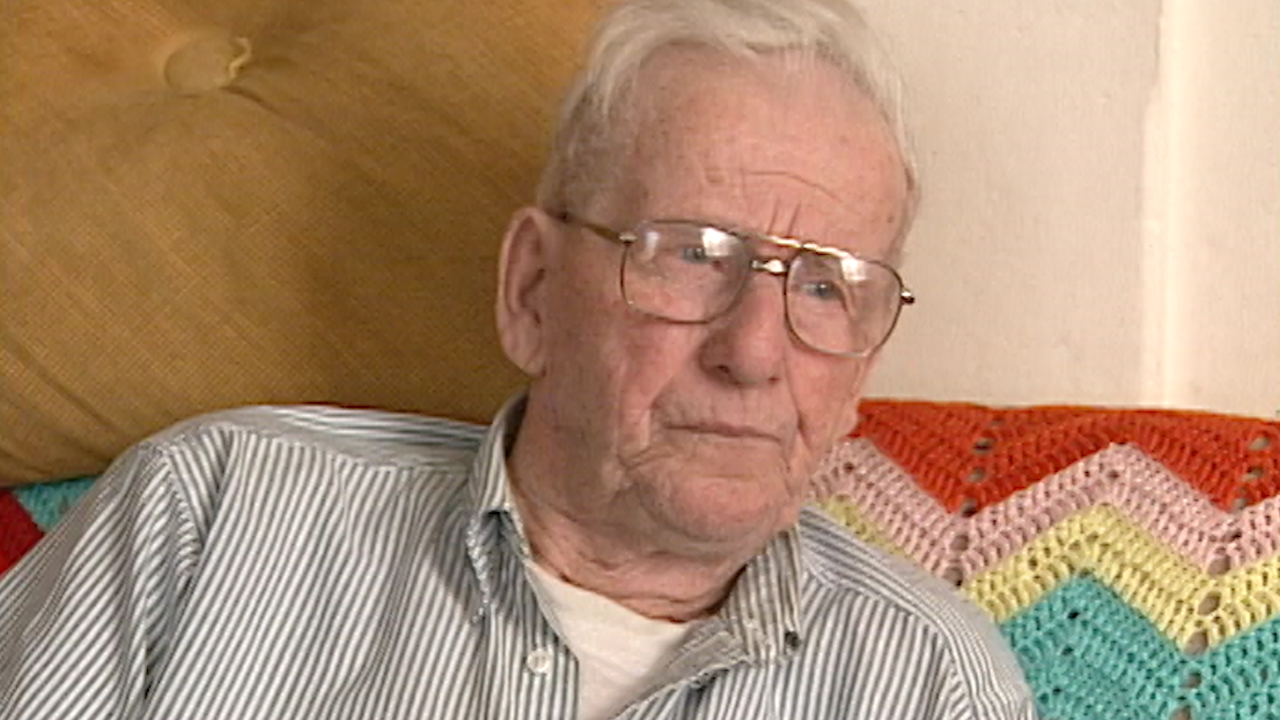I enlisted yeah. I enlisted in, in that year and I enlisted down
in New Glasgow. There used to be people, they hold meetings,
you know. There were speakers come out from Charlottetown.
What was MacMillan, what was his name. He became premier,
anyway in there. One of the MacMillan men. He was out here.
Interviewer: So they had recruiting meetings in New Glasgow?
Yeah. In the hall. Used to be a hall there and they changed it
into a, they sold it and made a mill out of it.
Interviewer: What to you recall about that meeting?
Oh, I recall about them telling everybody, they should go,
they should go and help their comrades overseas and all that,
you know. And how they were in need of men over there and,
so I strolled up to the, the last time I went and signed up
to go in. I was going I was to go into Charlottetown the next
day and join up, sign up, get my, you know, medical and all.
So anyway, next day come, I had to go by train then you see there
was no buses, or no we had no car then or anything. Had to go to
Hunter River and get the train at Hunter River and go in that way
So I went to Hunter River and got on the train there and when
you got on there was three or four fellows, young fellows,
not much older than myself and they were going in to enlist too.
And one of them was recruiting for the navy.
George, George Gamble was his name and he come along
and sat down beside me and, "You talking to me?"
First thing I know I was going to be a sailor.
Interviewer: And up until then you thought you were
going to be a soldier.
Yes, yes. Yes, that's what I, I thought I was going to be.
So when I went to get in town I signed up as a sailor and that's
how I got in the navy. I'd never been in, even in a
row boat before that, I don't think.
Interviewer: And you were nineteen years old?
No, seventeen.
Interviewer: Seventeen years old? Yeah, yeah.
Interviewer: In Charlottetown, after you had enlisted what
happened then?
Well, then I had a couple of days. I had three days I think.
I had to come home and say good-bye and farewell to the ones at
home and around and then I went into Charlottetown.
Interviewer: What was it like saying good bye?
Oh, it wasn't very nice. It wasn't very nice. It wasn't very nice
My mother was, took it pretty hard, but she took it pretty hard.
She gave me, she couldn't say goodbye, she gave it to me in
a letter which I have in that bible yet. I took it with me to
England, I brought it back and I took it with me to Ottawa and I
brought it back. I still got it. It was her farewell words to me
And one of them was - try and find someone that don't drink for a
pal, you know. Well, that was quite a hard job to do in the army
or the navy if you ever, if you ever try to find somebody that
don't drink. When we got over, when I was going over and we got
over about where I suppose, where they, they're more apt to be
submarines. Oh was I ever, you'd look out and you'd see a little
dot here and there all and around you like. And you know what
they were? English destroyers. Come out to meet us. I never felt
so safe then, you know. They were coming out... they were out
in as far as, the submarines can only come out so far, they
gotta, they don't like to be out where it's real cold in the
waters. So these, these were English submarines in the British
Navy coming out to meet us, to escort us right in to Liverpool.
That was my big moment when I was going over. Yeah, when I'd seen
those I didn't think, I know we wouldn't have to swim ashore then




